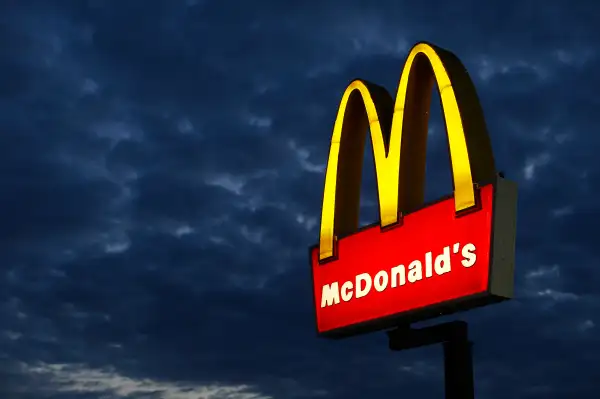5 Problems That'll Challenge McDonald's No Matter Who's CEO

Amid slumping sales and years of losing customers to Chipotle and other fast casual contenders, McDonald's CEO Donald Thompson announced this week that he would be retiring in March. "It's tough to say goodbye to the McFamily, but there is a time and season for everything," Thompson said in a press release.
His replacement, current chief brand officer Steve Easterbrook, will take over a McFamily with many problems to address—problems that, given McDonald's muddled sense of mission of late and overarching changes in demographics and the marketplace, have seemed difficult if not impossible to solve. Among the issues that need attention:
Millennials
Generally speaking, millennials love food and dining out, and yet their preferences—customizable options, transparency, and fare that's healthier, more sustainable, and altogether superior compared to any cheap cookie-cutter fast food joint—are the exact opposite of what McDonald's is known for. McDonald's has made some moves clearly aimed at winning over millennials, including ventures into personalized, make-your-own burgers and potentially adding brunch menu items (brunch is a Gen Y obsession). McDonald's has also dramatically expanded the menu over the years with the hopes of drawing in more young customers. Yet many of these initiatives have proven to be costly, and they've failed to make McDonald's a top choice among millennials—who tend to favor Starbucks, Chipotle, and other more upscale fast casual contenders over McDonald's or any old-fashioned fast food establishment.
No Hot New Product
Around this time last year, business reporters were proclaiming that McDonald's desperately needed to add a "miracle" product to the menu like Wendy's did with its Pretzel Bacon Cheeseburger. That once-limited-time-only burger proved such a hit that Wendy's added it to the permanent menu last summer. Other recent monumental successes in the fast food world include Taco Bell's Doritos Locos line of tacos.
Of course, McDonald's has regularly rolled out plenty of new menu items with the hope of them breaking out as phenomenal best-sellers. But new contenders like fish nuggets and habanero Quarter Pounders have come up way short of being runaway successes, and another recent menu addition, overpriced chicken wings, was a huge flop. The Wall Street Journal has reported that McDonald's most recent "bona fide blockbuster" new product, which stayed on the menu and impacted sales in a significant way, was the McGriddle pancake breakfast sandwich, introduced back in 2003.
Pricing
McDonald's decades-long value pitch is that it's a quick and inexpensive place to eat, and that reputation has hurt the fast food giant lately in two ways: 1) It's difficult to raise prices and offer "premium" items like the doomed Angus burger because the customer base, accustomed to cheaper prices, won't pay up; and 2) because McDonald's food is fast and cheap, the assumption is that the quality must be low. As one fast food franchise consultant told the Associated Press, “It’s the whole perception people get when you sell something cheaply.”
McDonald's needs its coffee giveaways and low-price value menu to pull in diners even though these items result in little to no profits. Yet to increase profits and better compete with the likes of Starbucks, Panera Bread, and Chipotle, McDonald's is constantly trying to entice customers into spending more on "gourmet" and "premium" options like espressos and McWraps. As a result, service has slowed, lowering the value proposition at the same time, and McDonald's pricing doesn't make sense to many customers. When there are a bunch of burgers for under $2 in the Dollar Menu & More section, it's puzzling why anyone would pay $5 or so for what seems like a very similar burger on the regular menu.
Focus
This problem is closely related to how McDonald's pricing is all over the map. That, along with the fact that the McDonald's menu has expanded to the point of being unwieldy and slowing down operations, has left franchisee owners angry and deeply concerned that the company has lost its sense of focus. McDonald's recently announced intentions to scale back the menu and put some items on the chopping block. But such a measure could create its own problems. After all, some of the items likely to be downsized or cut, including espressos and McWraps, were added to menus to woo millennials and consumers who otherwise probably wouldn't dine at McDonald's.
Haters
During the Golden Globes, McDonald's aired a "Signs" commercial campaign showing how different restaurant locations posted messages in support of local causes, the troops, and 9/11. Loads of people took to social media to say how much they hated the ad. Last year, McDonald's introduced a new Happy Meal mascot and Ronald McDonald got a makeover. Both efforts were declared "terrifying," while the former was also categorized as "nightmarish" and the latter was described as the face of the "saddest place on Earth."
Heck, even when McDonald's launches a broad "transparency" campaign answering questions about where its food comes from and how it is processed, the company is bashed for admitting to unhealthy practices and because of skepticism about other things still being hid.
The point is: People love to hate McDonald's. In a story I wrote about the reaction on social media to the new Happy Meal mascot, Steve Connelly, of the Boston ad agency Connelly Partners, put things in perspective by explaining there are legions of opinionated consumers out there who consider McDonald’s “a piñata” rather than simply just another brand or place to eat. Many people will “keep bashing the hell out of them every chance you get because they stand for evil and are making the nation fat. Sometimes I think if McDonald’s came up with a cure for cancer they would get bashed for it.”
Surely, McDonald's hates how much hate it attracts. And it's up to the new leadership to figure out how to change perceptions that have built up over generations in the U.S. and abroad. They have to find a way to convince the haters to stop hating.
